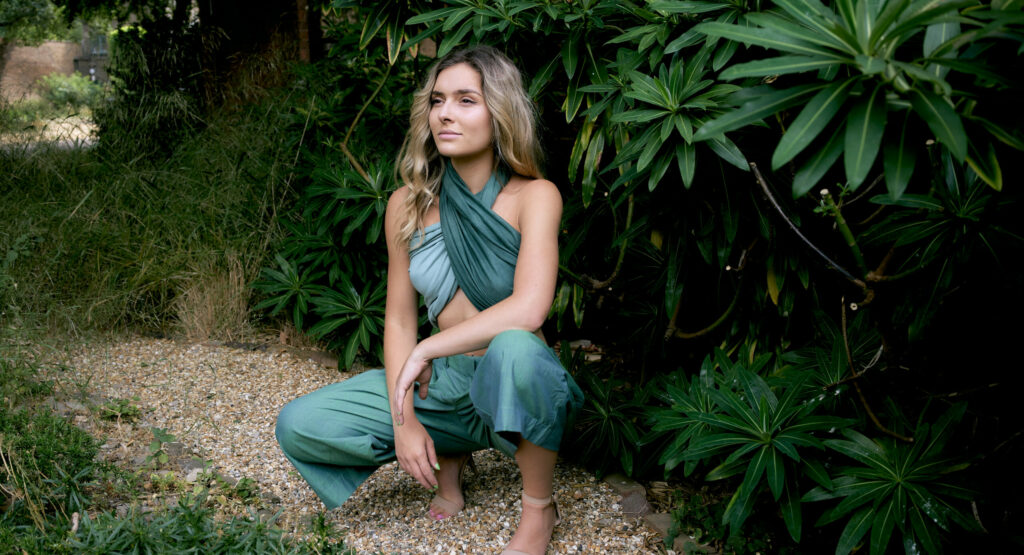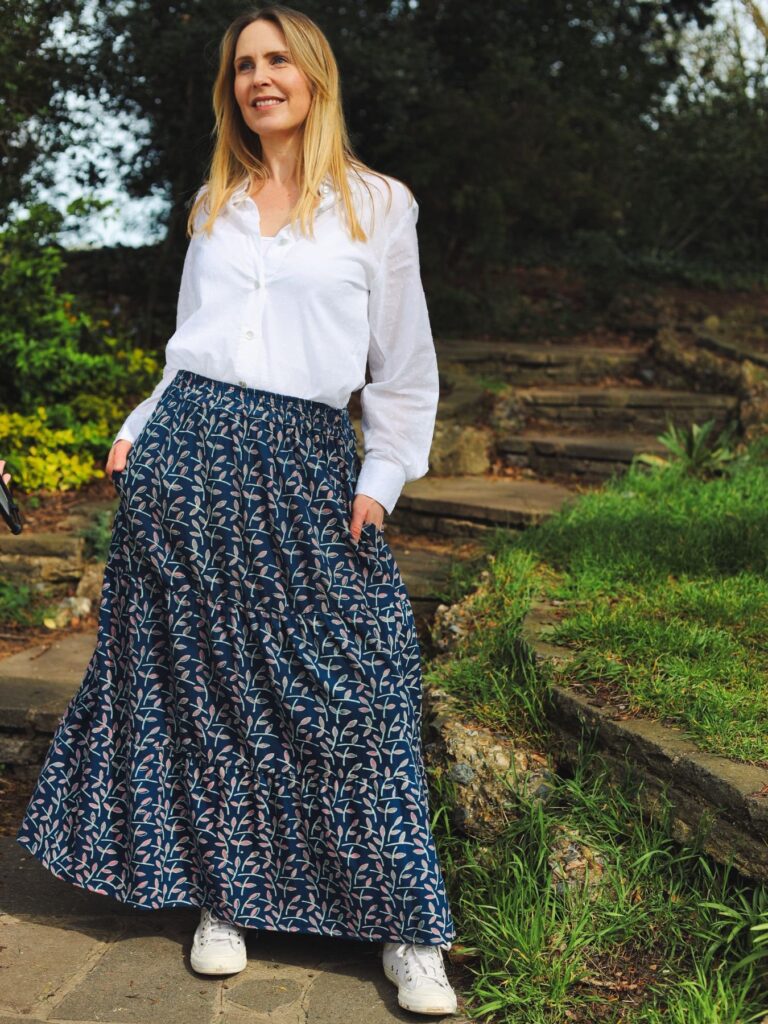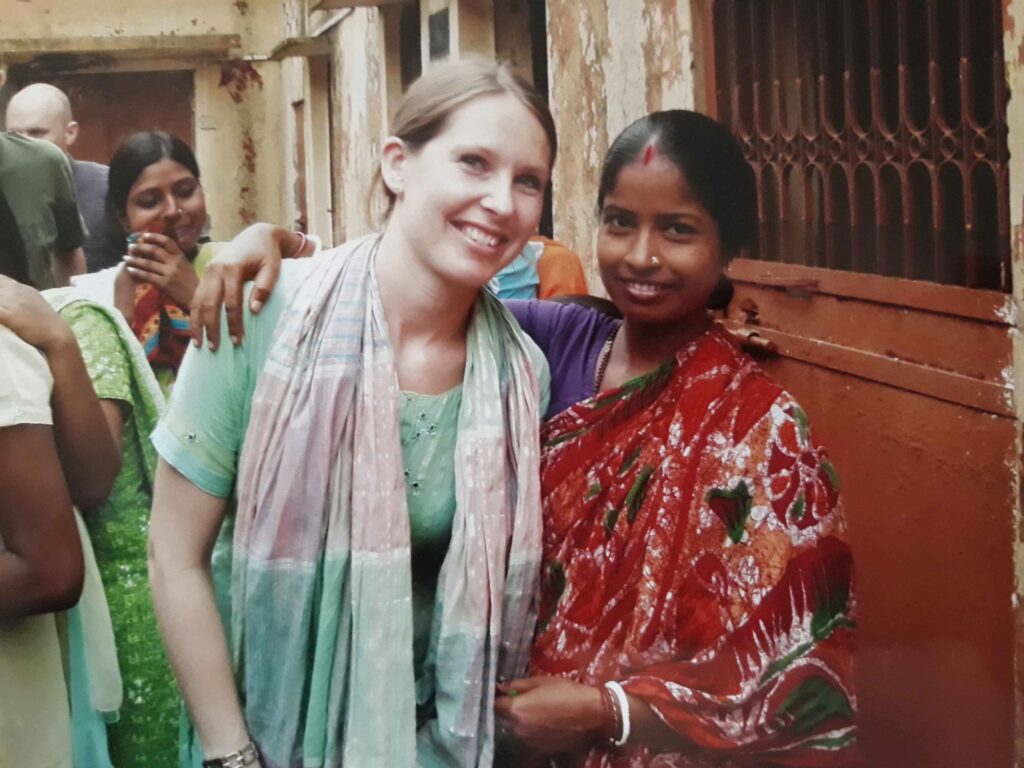The best sustainable men’s activewear for the gym, hiking, swimming and more…
In our series, Changemakers, we interview people who have shifted their work to focus on sustainable and ethical issues. We ask what was the ‘lightbulb’ moment that inspired them to make the leap and what their biggest successes and challenges have been along the way…
Jenny Allan was a designer for Debenhams. She is now the founder and CEO of Jenerous, an ethical fashion brand based in Romford, England. Jenerous partners with Fair Trade enterprises in India to create artisan-made women’s clothing and accessories, empowering women with fair wages and sustainable work. As a CIC and social enterprise, the brand also gives back from sales to support marginalised communities, including a tailoring training programme for people affected by leprosy.
Live Frankly: When did you launch Jenerous, and why?
Jenny Allan: I launched Jenerous in September 2019 because I wanted to create a positive difference through fashion and offer consumers a better choice. I’d previously visited India and seen the need for work, especially for women, and wanted to use my skills and experiences from working in the fashion industry to create clothing with positive impact.
What does a typical day look like for you?
Every day is different, depending on the time of year and the priorities or deadlines that I have. As a small business owner I find that I wear many hats and can be doing our accounts, liasing with suppliers, designing new products, researching trends, marketing and social media, updating the website etc. I also have a dog to walk and mum responsiblities, so it really is a juggling act!

Can you tell us a bit more about your career before Jenerous?
Immediately before starting Jenerous I took a career break to look after my young children. Prior to that I designed women’s occasionwear for Debenhams for many years.

What did you love about your previous work? What didn’t sit right with you?
I loved the creativity and opportunity to see my designs in a big store and working as part of a team. It was a design-focused role, which I enjoyed. Now I run my own business I’ve needed to learn lots of new skills and don’t get to do very much design anymore!
On the downside, I was very aware that profit was the main driver for the business and that sustainability wasn’t really considered. We were also working at a fast pace, creating new designs all the time, which again is very different from the slow fashion brand that I now run.
Was there a lightbulb moment that led you to start Jenerous?
I visited India back in 2007, while on a mini career break from Debenhams. I did some voluntary work in a school and women’s empowerment centre and I saw the need for employment and income for the women. So, I started thinking about how I could use my skills to help create empowering work.

What challenges did you face when starting your business?
It was a steep learning curve in terms of all the different roles involved with running a business. It was also a challenge to source fabric and product at low minimums when starting out, so we were very grateful to Jacobswell in Bangalore who supported our vision and worked with us on our initial launch collection.
Have there been any “I can’t believe this is happening” moments along the way?
I think it’s been amazing to have been shortlisted for lots of awards – we’ve been listed in the SE100 and as a finalist in the Drapers Conscious Fashion Awards for Best Social Enterprise or Charity Initiative. This recognition is really encouraging.
What’s a challenge you’re currently working through?
I think as with all businesses in the UK, we’re facing a very tough retail environment at the moment.
What do sustainability and ethics mean to you personally and professionally?
Jenerous reflects my outlook on life, as I seek to do things with integrity and do ‘fashion’ the right way! Seeking to be as sustainable as possible and being ethical is at the heart of our brand purpose and mission, so it’s really important in everything that we do.
How does your company approach sustainability and social impact?
We source sustainable fabrics like organic cotton and use eco-friendly dyes. We’re also working with a factory to use up their stock fabric (deadstock), and we always make accessories from our production off-cuts to minimise waste.
In terms of social impact, we partner with WFTO (World Fair Trade Organisation) enterprises who are following the 10 principles of Fair Trade. We also give back 10% of every sale to support a tailoring training programme run by the charity The Leprosy Mission, for young people affected by leprosy.
Why was this important to you from the start?
Because when I started Jenerous I wanted to create a business that prioritised people and the planet rather than profit.
What’s next for you?
We’re excited to be expanding our reach through developing our wholesale business, having been selling directly to customers up until now. We’re also excited about new partnerships that we have formed on our recent trip to India, and the opportunities created by working with new WFTO suppliers and supporting their work… watch this space!
What kind of support or collaboration are you currently seeking?
We want to connect with shops that are interested in buying ethical and sustainable products and to continue to seek to raise our brand awareness.
What message would you like to share with others building ethical or sustainable businesses—or thinking about it?
It’s not an easy journey, but it’s a fulfilling and worthwhile investment for a better future and it can make a significant difference to people’s lives.


